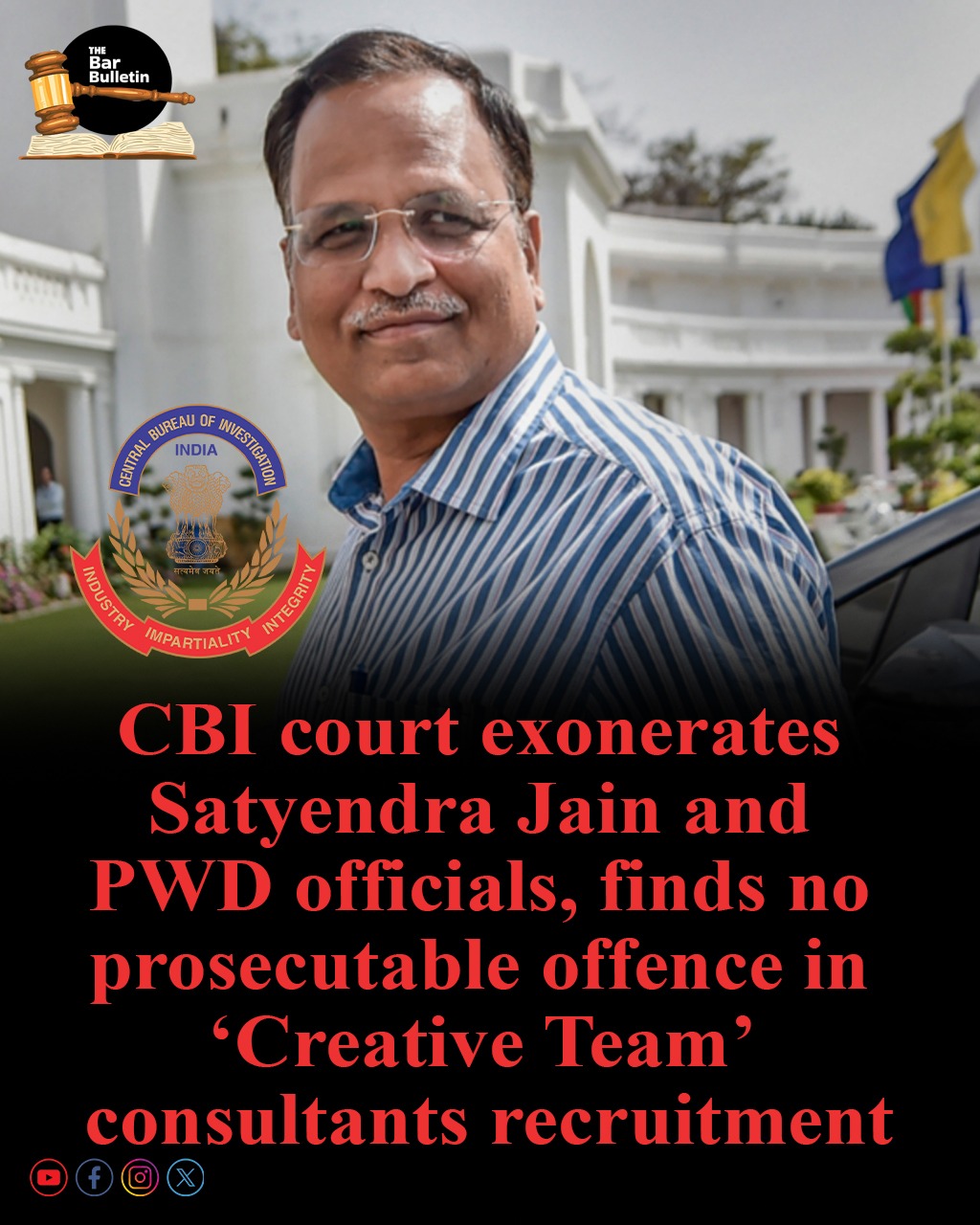The Special Judge for CBI cases at Rouse Avenue, Delhi, has accepted the closure report filed by the Central Bureau of Investigation (CBI) in the FIR against former Delhi Public Works Department (PWD) Minister Satyendra Jain and senior officials, bringing an end to criminal proceedings alleging irregularities and corruption in the engagement of a 17-member “Creative Team” of technical experts.
The underlying complaint, raised by the GNCTD Vigilance Directorate, alleged that Jain and others had violated standard recruitment procedures, used unrelated public project funds, and showed undue favour to M/s Soni Detective & Allied Services Pvt. Ltd. in the outsourcing process. The case sought to probe whether such acts resulted in financial loss, criminal misconduct, or personal gain under the Prevention of Corruption Act, 1988 (PC Act).
The petition centred on charges that the department bypassed established finance rules and CPWD guidelines, manipulated eligibility and scope, and misallocated project funding, all to benefit the chosen private agency. The CBI undertook a detailed four-year investigation into whether a genuine departmental need existed, if an open and fair selection process took place, the manner of outsourcing, the use of project funds, and the presence of any pecuniary advantage. It found that the hiring was justified given high vacancy rates and the urgent need for architectural and technical talent to implement major infrastructure projects.
Public funds were charged initially to “Barapulla Phase-III” but later correctly to “Mohalla Clinics” project budgets, with all necessary corrigenda issued. The investigation highlighted that the professionals’ credentials and emoluments were consistent with market and departmental standards, and many subsequently left for higher-paying roles, negating suggestions of favouritism. The CBI found no substantive departure from rules warranting criminal prosecution, and detected no evidence of conspiracy, bribery, or wrongful gain.
In response, the original complainant’s protest petition accused the CBI of ignoring critical documents and failing to appreciate the project’s urgency and proper administrative approvals. Several Supreme Court authorities were cited to support a plea for either further investigation or refusal of the closure report if grounds for criminal misconduct prima facie existed.
The Court, led by Special Judge Dig Vinay Singh, rejected the protest, reiterating that administrative errors or procedural lapses do not in themselves constitute criminal misconduct under section 13(1)(d) of the PC Act unless wrongful gain or corrupt intent is clearly demonstrated. Suspicion, however strong, cannot substitute for proof. Noting the absence of evidence of corruption or conspiracy after nearly seven years, the closure report was accepted. The CBI retains the liberty to reinvestigate if new material emerges.



